Can I Rebuild My Natural Collagen? What You Need To Know
“Natural collagen production is supported through a healthy and balanced diet by eating enough protein foods, whole grains, fruits, and vegetables and reducing lifestyle risk factors.”
Harvard School of Public Health
How can I rebuild collagen in my face? The short answer is, yes!
Collagen is a major structural protein found in our skin, tendons, bone, and connective tissue. It’s what gives our skin strength and elasticity.
As we age, collagen production declines and we begin to see the signs of aging such as wrinkles and sagging skin.
There are many factors that contribute to the decline in collagen production. However, there are also things you can do to help rebuild your natural collagen and keep your skin looking its best longer.
Continue reading this article to learn more about collagen and how you can maintain your skin’s youthful glow by boosting its natural collagen levels.
What exactly is collagen?
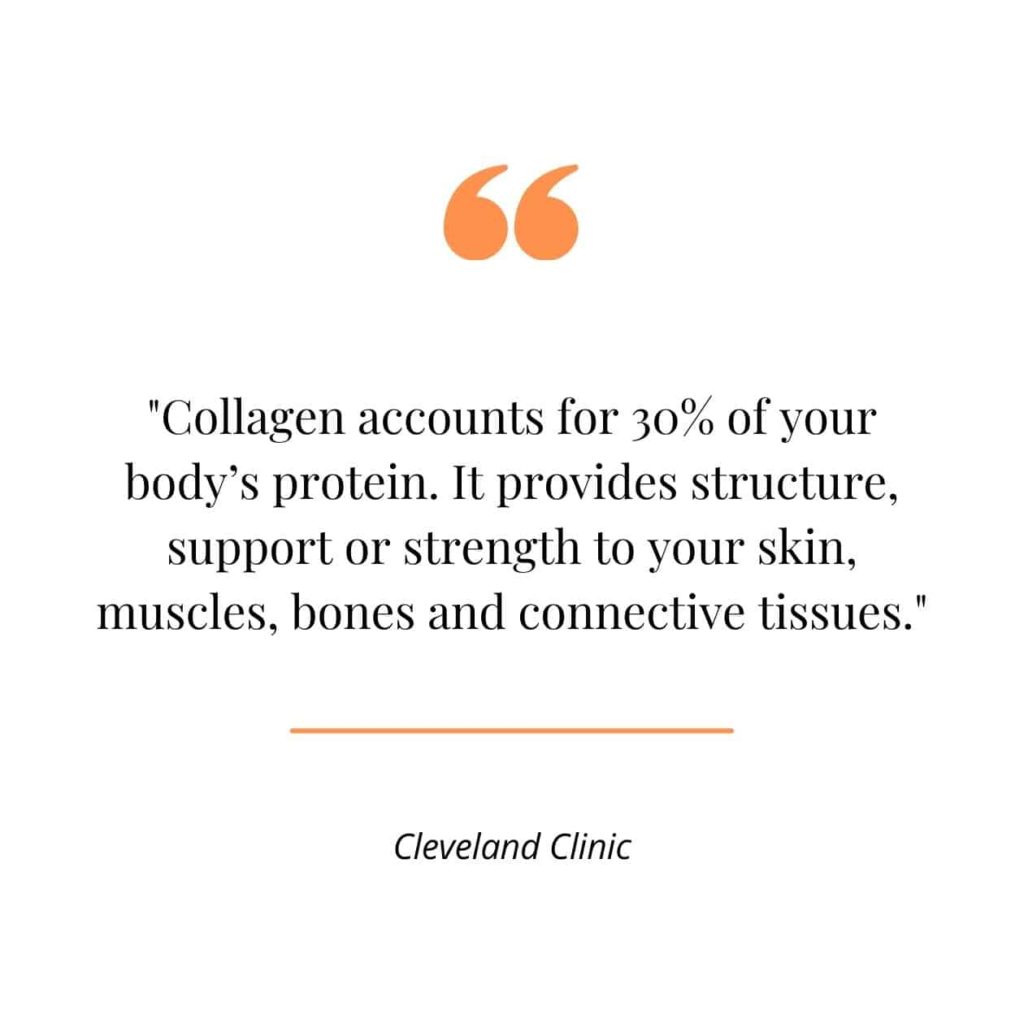
Collagen is one of the main proteins found in our body. It’s responsible for giving our skin strength and elasticity.
This natural protein is produced by cells called fibroblasts and as we age, the production of collagen begins to slow down.
This leads to the formation of wrinkles, sagging skin, joint and bone problems, and sometimes digestive issues.
Along with aging, there are many factors that contribute to the decline in collagen production. These include:
- Smoking
- Sun exposure
- Poor diet and nutritional deficiencies
- Stress and anxiety
On the other hand, there are also preventative measures you can take to rebuild the collagen in your body, both naturally and by supplementation.
Let’s take a closer look at how to boost your collagen..
How can I rebuild collagen in my face?
Many people try to keep their face free of wrinkles and look healthy as they age.
Without major reconstructive surgery, there’s no way to 100% stop our faces from showing signs of age, but there are certainly ways that you can do the most to keep your skin healthy and glowing!
Let’s take a look at a few of the ways to help rebuild the collagen in your face:
Supplementation
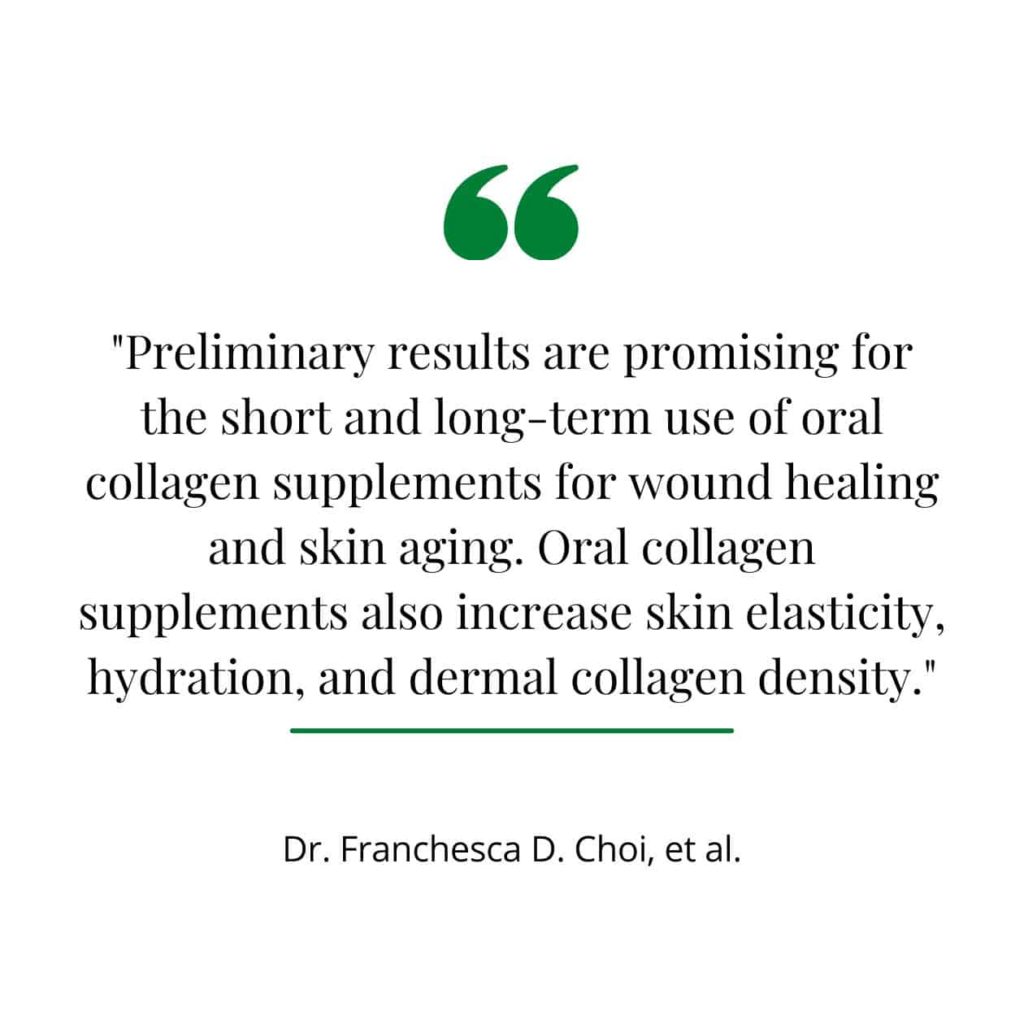
One of the most popular ways to help rebuild the collagen in your face is by taking supplements. There are many different types of collagen supplements on the market, and they come in a variety of forms including powders, drinks, and capsules.
One particular type of collagen supplement that is gaining popularity is clean-sourced collagen. This is a type of collagen that is produced from grass-fed, pasture-raised animal sources.
As a result, it is considered to be one of the best types of collagen for skin and facial health.
Topicals
In addition to supplements, there are also topical products that you can use to help rebuild collagen in your face. These products typically contain active ingredients that stimulate the natural production of collagen in your skin.
Some of the most popular active ingredients used in these products are retinol, vitamin C, and hyaluronic acid. All of these ingredients have been shown to be effective at stimulating collagen production and improving the overall appearance of the skin
Diet

Eating a proper, balanced diet is another simple way to encourage collagen production.
Making changes in your diet and a few other lifestyle choices can make a big difference in the health of your skin.
Here are a few dietary tips to help improve collagen production:
- Eat foods that are rich in vitamin C, such as citrus fruits, bell peppers, broccoli, and Brussels sprouts.
- Include foods that are high in proline and glycine, such as meat, fish, cheese, spinach, and soybeans.
- Limit your consumption of sugar, alcohol, and unhealthy fats.
Lifestyle
Making simple lifestyle changes is an easy way to help improve your overall health, and in turn, help boost collagen production.
Here are a few lifestyle tips to help improve collagen production:
- Avoid excessive sun exposure
- Try to reduce your stress levels through exercise, meditation, or other methods
- Get your eight hours in each night
- Stay hydrated by drinking plenty of water each day.
What does collagen do for the body and skin?
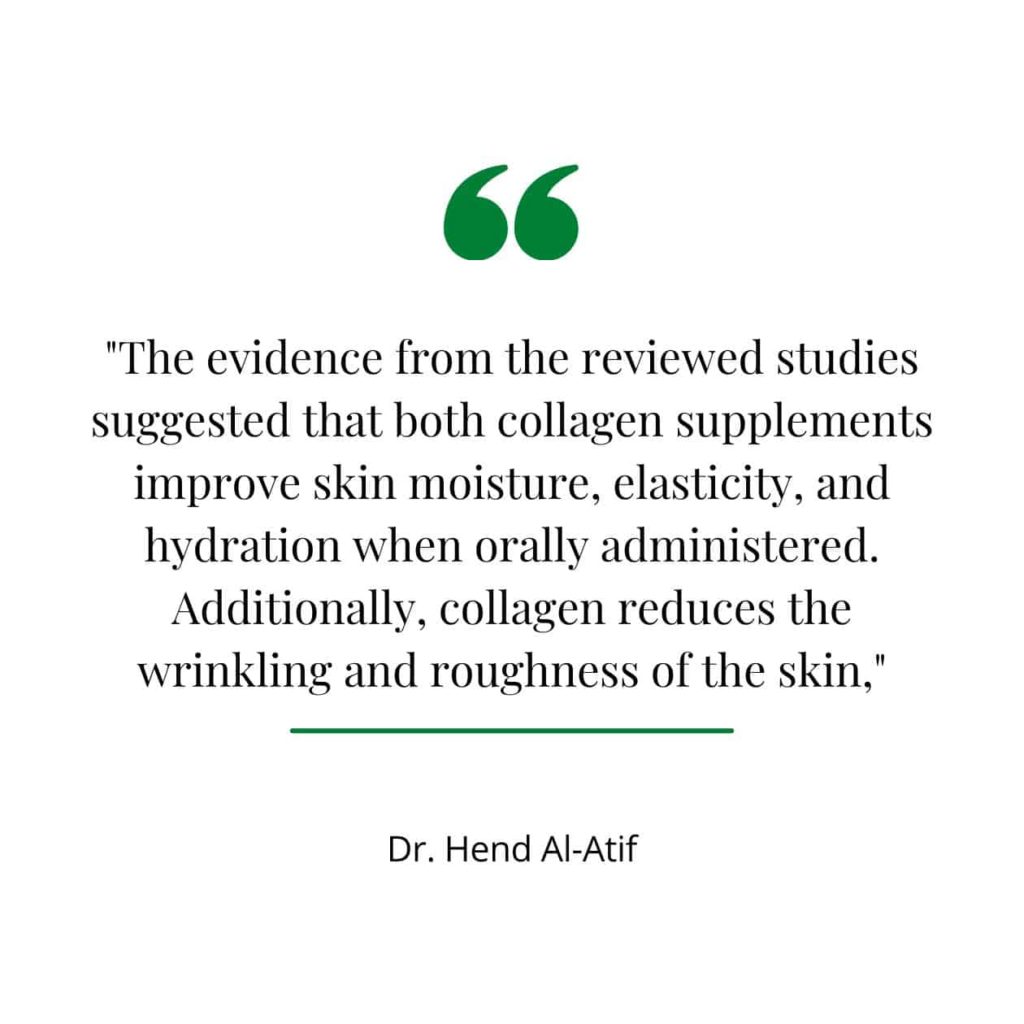
Collagen is the most abundant protein in the human body, and it plays a vital role in many different functions.
Some of the most important functions of collagen include:
- Supporting the structure and function of skin
- Helping to heal wounds and injuries
- Improving joint health
- Maintaining gut health
- Providing support for the bones, ligaments, tendons, and muscles
In addition to these benefits, collagen is also widely believed to play a key role in reducing the visible signs of aging, such as wrinkles and sagging skin.
When will I see collagen results, and how long will the results last?
The time it takes to see results will depend on the type of collagen supplement you are taking, as well as other factors such as your diet and lifestyle. Generally speaking, you should start to notice an improvement within a few weeks.
The results from using collagen supplements are generally considered to be temporary, meaning that they can be easily reversed if you stop taking the supplements. To maintain the results, you will need to continue using the supplements on a regular basis.
Tips for How to Prevent Collagen Loss
If you’re interested in learning how to prevent collagen loss, there are a few things that you can do to help keep your skin looking young and healthy. Here are a few tips:
Add retinoids to your routine

Retinoids are a type of vitamin A that helps to stimulate collagen production. There are several different types of retinoids on the market, and they come in a variety of forms including creams, gels, and serums.
Try bakuchiol if retinoids are too harsh
Bakuchiol is a plant-based retinol alternative that has been shown to be just as effective at stimulating collagen production. This makes it a great option for those who are looking for a more natural way to rebuild collagen in their skin.
Protect collagen with topical vitamin C
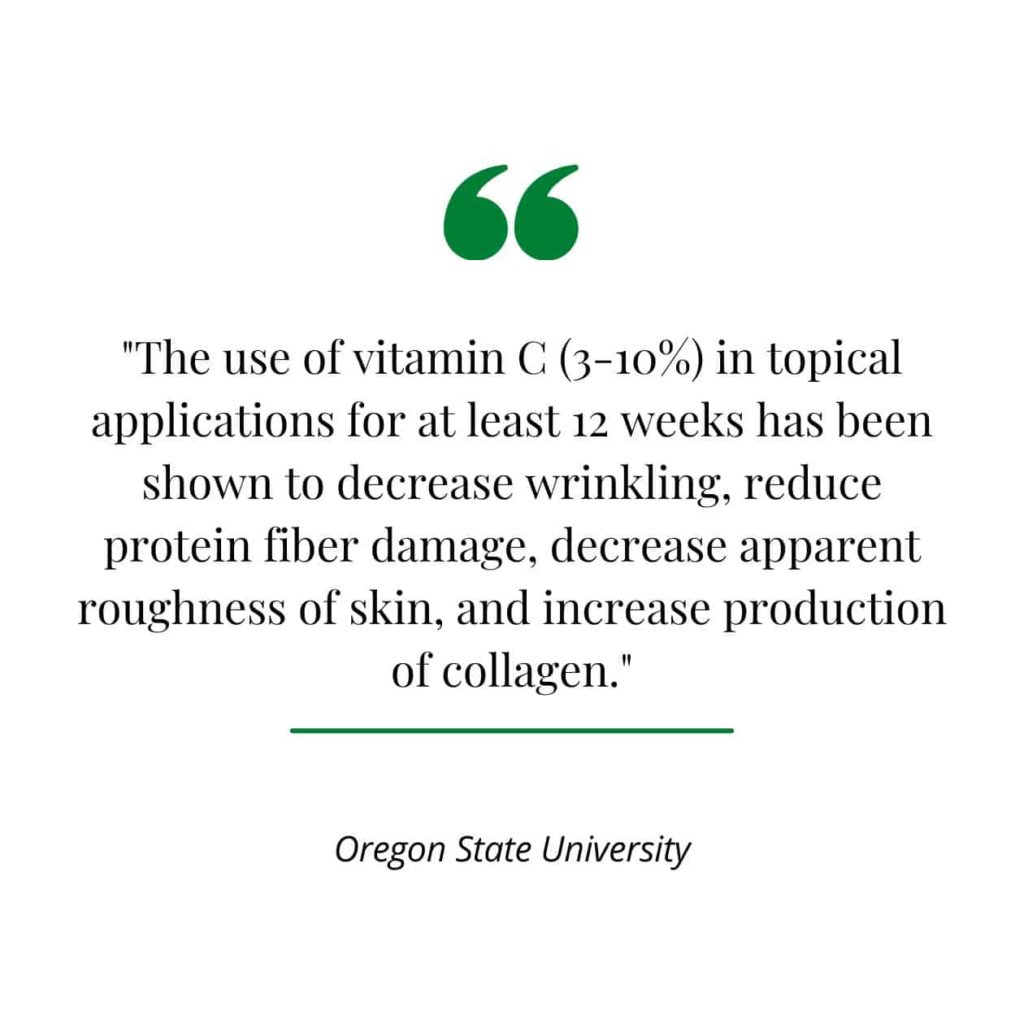
Topical vitamin C has long been considered to be one of the best ways to protect and maintain collagen levels in the skin. This is because it helps to inhibit an enzyme that breaks down collagen, while also stimulating new collagen production.
Put on Sunscreen every morning
Sunscreen is essential for slowing the breakdown of collagen in the skin, and it can also help to prevent UV damage that can contribute to premature aging.
Reapply sunscreen throughout the day

It’s also important to reapply sunscreen regularly, especially if you are going to be spending a lot of time outdoors. This will help ensure that your skin is protected from the sun’s harmful ultraviolet rays at all times.
Consider taking collagen supplements
Adding a collagen supplement to your daily routine is another great way to help improve collagen levels in the skin, and there are many different types available. Just be sure to consult with your doctor before starting any new supplements or treatments.
Add lean protein to your plate

It’s important to make sure that you are getting enough lean protein in your diet.
Protein is a key building block for collagen production, so eating plenty of lean meats, fish, and other sources each day can help to keep those levels high.
Limit your added sugar intake
Added sugar can not only lead to weight gain and other health problems, but it may also interfere with the body’s ability to produce collagen. This is because of the effects that sugar has on inflammation levels in the body.
Don’t smoke and stop if you do

Smoking is one of the worst things that you can do for your skin, and it can have a major impact on collagen levels. If you smoke, quitting is the best thing that you can do for your skin health.
Focus on healthy de-stressing strategies
Stress can also play a major role in collagen loss, so it’s important to find healthy ways to manage stress in your life. Some great options include exercise, meditation, and spending time with loved ones.
Keep moving
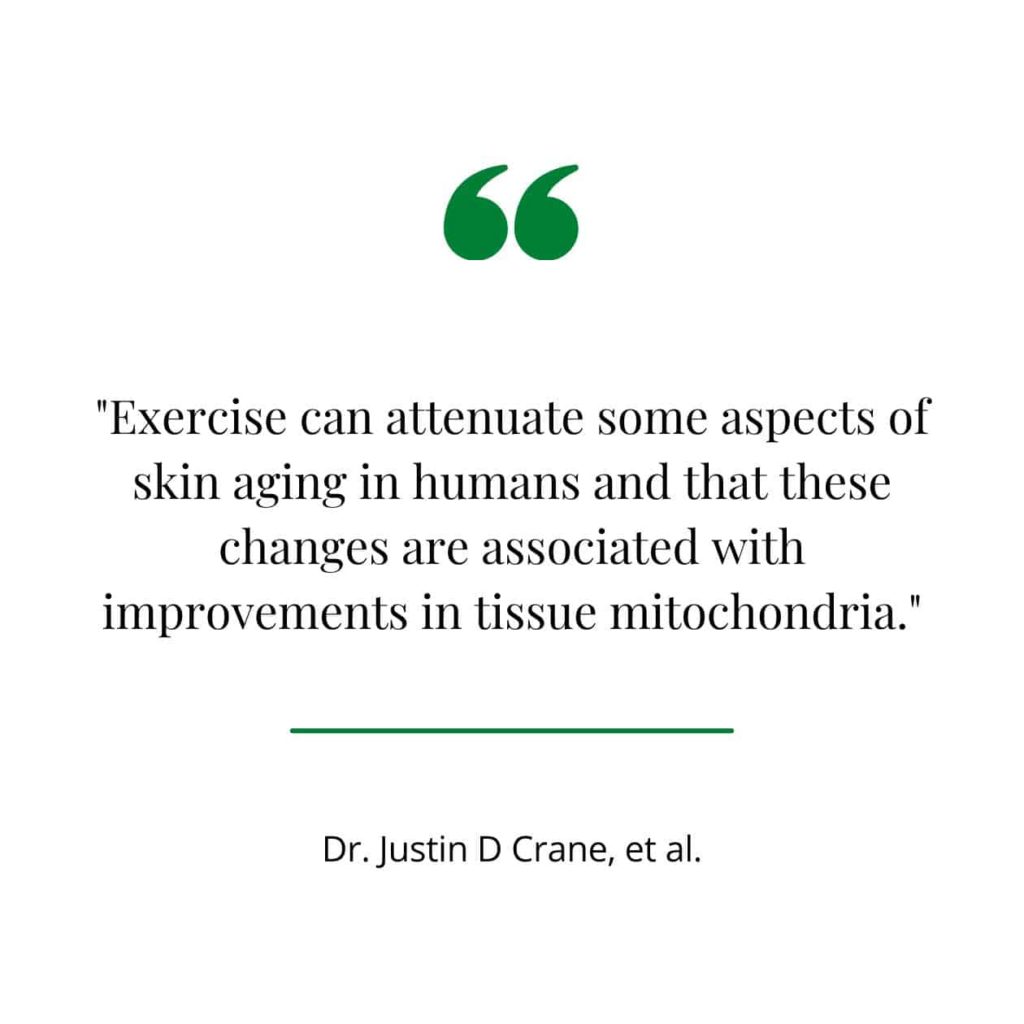
It’s important to make sure that you are getting enough exercise each day. Not only will this help to keep your heart healthy and burn excess calories, but it can also help promote collagen production in the skin.
Cut back on alcohol
Drinking too much alcohol can lead to dehydration, which can lead to dry and dull skin. It can also contribute to inflammation, which can have a negative impact on collagen levels.
Drink more water
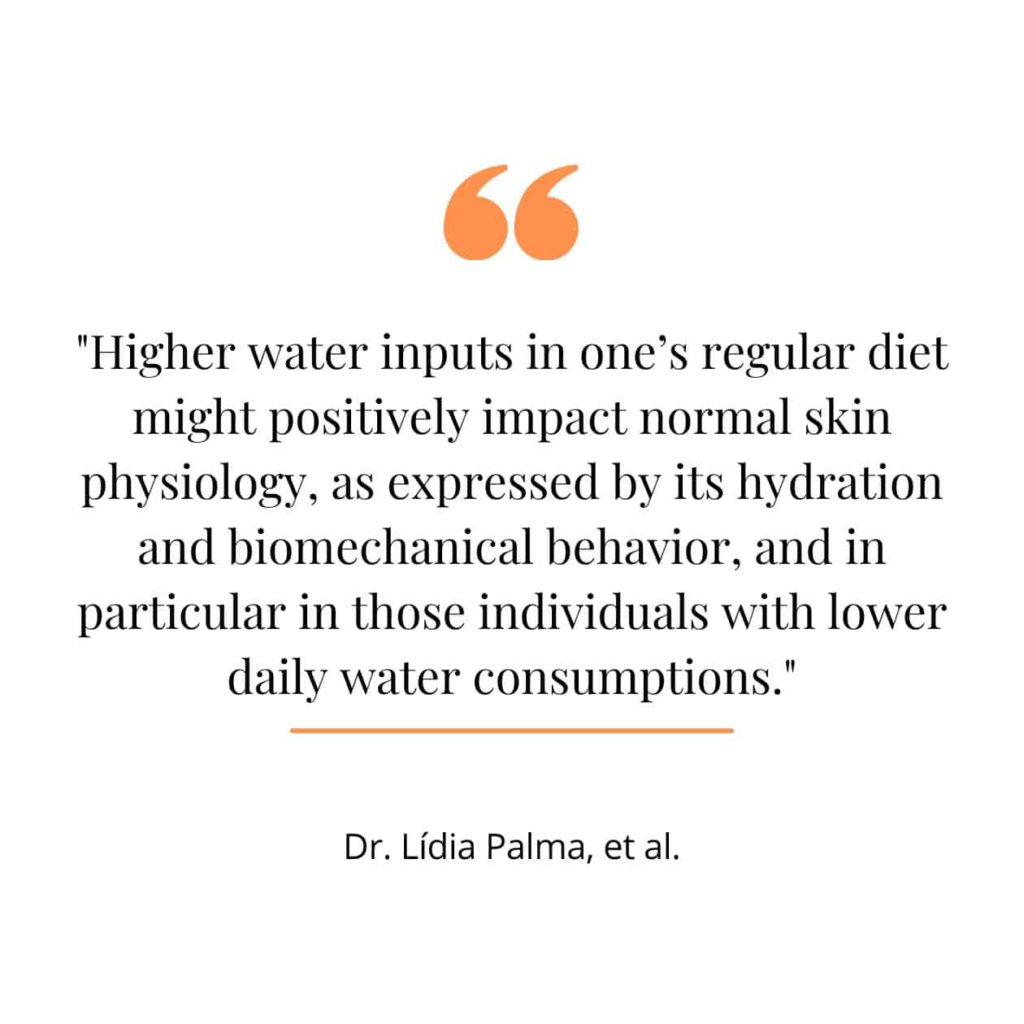
Staying hydrated is essential for keeping your skin healthy and hydrated, which can help to prevent collagen loss. Be sure to drink plenty of water each day, and consider adding a hyaluronic acid serum to your routine to help lock in moisture.
Get your beauty rest
Getting enough sleep is important for overall health, and it can also help to improve collagen production. This is because the body produces most of its collagen while we are asleep.
Is collagen supplementation safe?
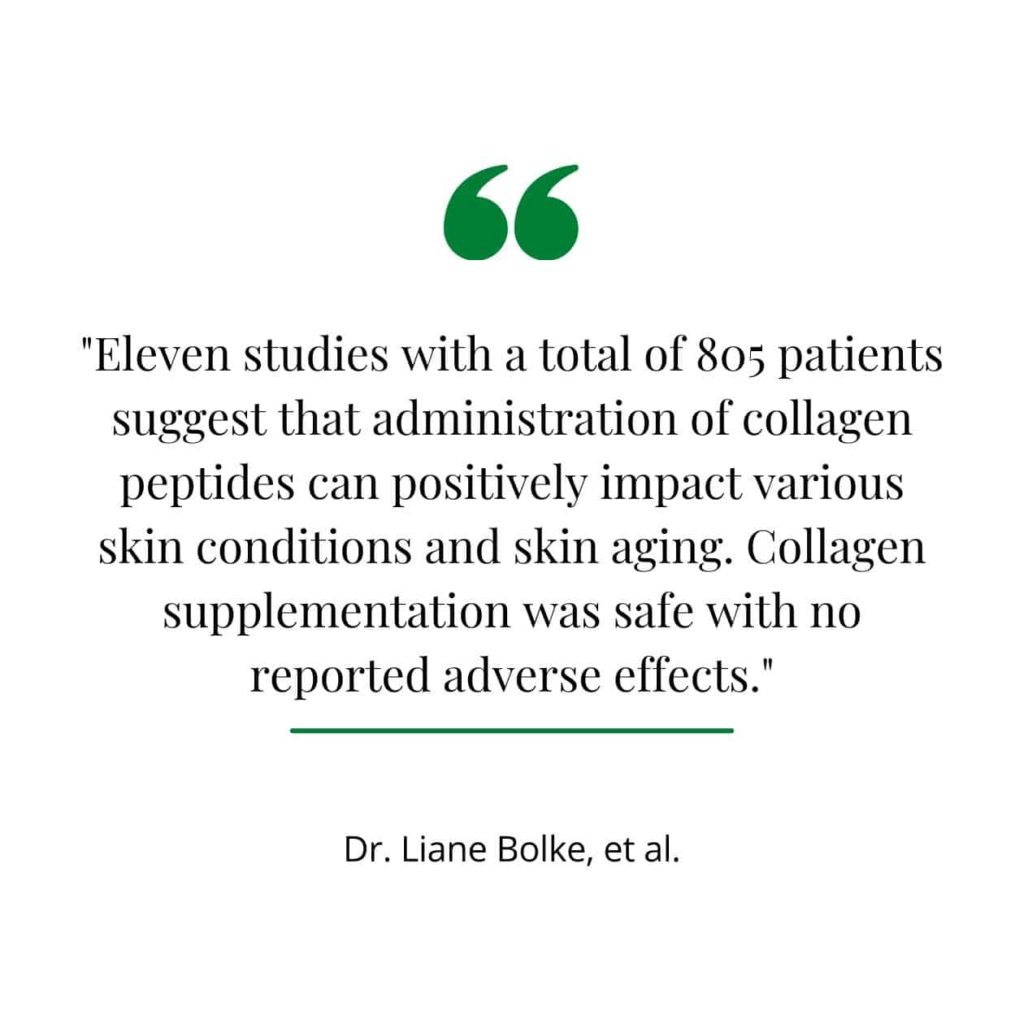
Yes, collagen supplementation is considered to be safe for most people. On the rare account of people reporting side effects, they’re always quite mild.
Most people who complain of collagen side effects suffer headaches, upset stomach, or heartburn.
The Bottom Line
Now that you’ve learned all about what collagen is, what collagen peptides do, and how to combat those pesky signs of aging, you can make an informed decision as to whether you’d like to try to incorporate collagen supplements into your daily routine in an attempt to rebuild your natural collagen.
To read more about various health-related topics, check out our Health Blog or browse through our clean-sourced, natural collagen products!
Organixx Clean Sourced Collagens blend contains five types of collagen from four sources. What’s more, it’s combined with targeted nutrients such as zinc, vitamin C, and vitamin B6 which specifically enhance the bioavailability and potency of collagen. Clean Sourced Collagens is formulated from the ground up to enhance and support your body’s natural ability to heal and rebuild itself from the INSIDE out.







Comments